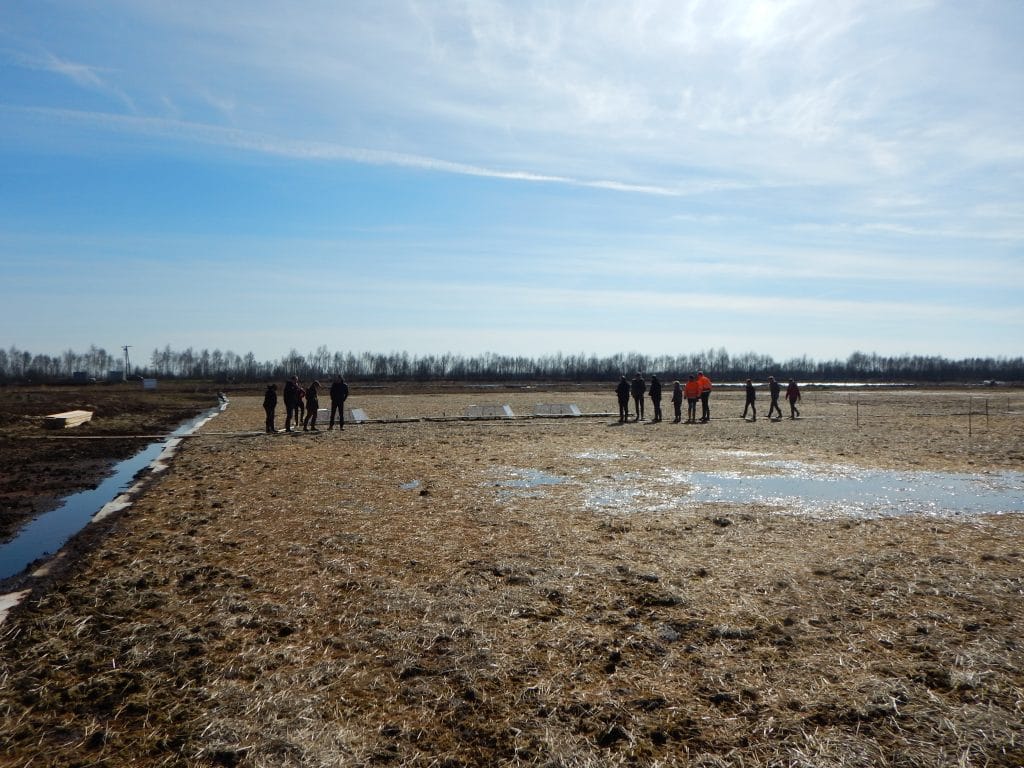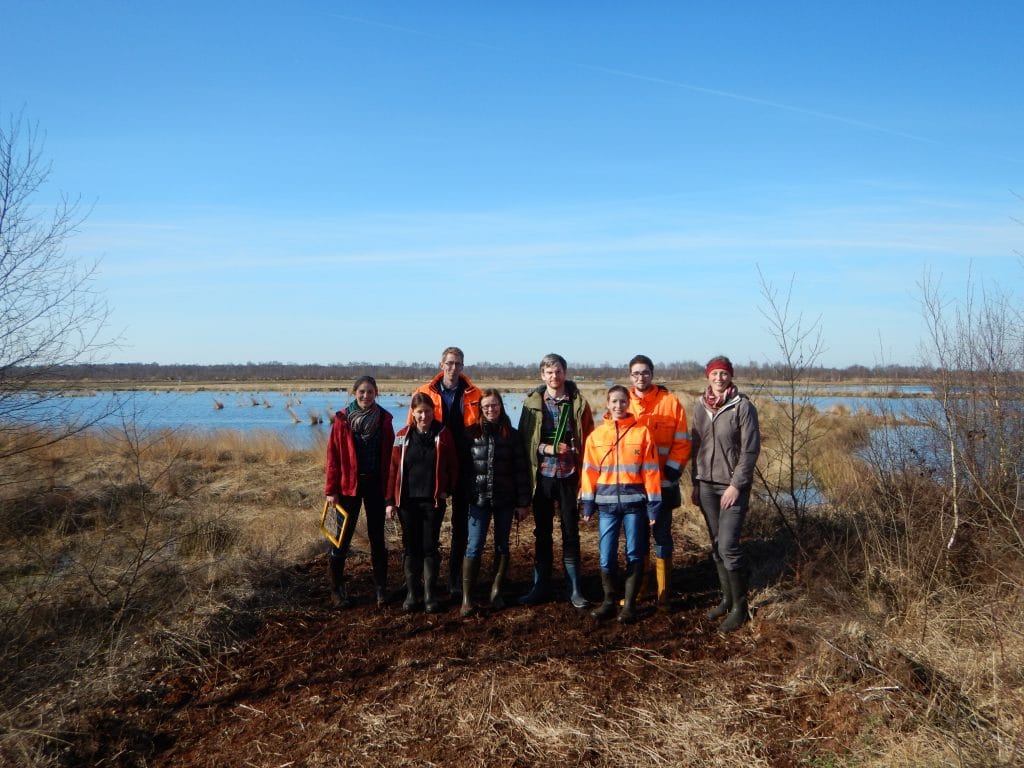Renaturation with sphagnum farming
Klasmann-Deilmann promotes fundamental research
Klasmann-Deilmann’s sphagnum farming project promotes fundamental research. Inoculating drained peat bogs with peat mosses and the associated re-waterlogging raises the success rate of restoring these sites. To mark the launch of a project by three doctoral candidates, Klasmann-Deilmann and the young scientists presented the project to the German Federal Environmental Foundation (DBU) at the project site in Geeste.
The project team is made up of Klasmann-Deilmann employees, members of Hannover University’s Institute of Environmental Planning and Thünen Institute of Climate Protection in Agriculture in Braunschweig. Together, they are investigating interdisciplinary ecological questions relating to biodiversity and the climate. Our sphagnum farming project was launched in 2015 and Master’s degree students were responsible for setting up the scientific project framework. Now, the doctoral candidates sponsored by the DBU are beginning their work.
Site installation and maintenance

This project is the world’s first large-scale attempt to cultivate peat moss on black peat. After eighteen months, it is apparent that the sites are developing very well, that the moss is beginning to grow and that typical peat bog species are beginning to colonise the sites. Amanda Grobe and Lotta Zoch, doctoral candidates at the Institute of Environmental Planning at Hannover University, are now examining the flora and fauna to establish which and how many species of animals and plant benefit from the sphagnum farming. To do so, they compare colonisation on the project sites with colonisation on near-natural peat bog sites and restoration sites where there is no sphagnum farming.
Climate protection

The doctoral candidates will continue their experiments on the sites until 2019 in order to obtain reliable scientific data.